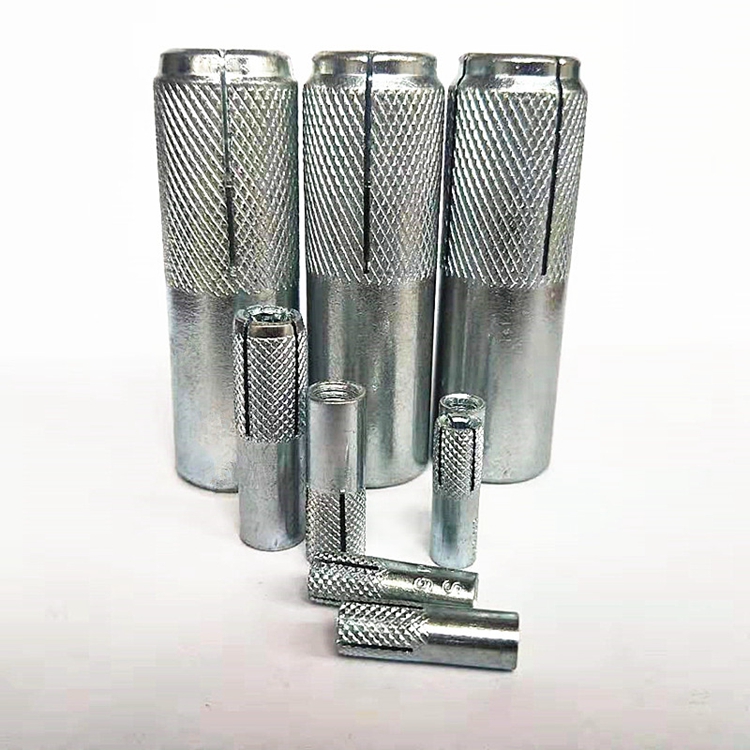stainless steel rivet nuts factories
Dec . 02, 2024 07:13 Back to list
stainless steel rivet nuts factories
The Rise of Stainless Steel Rivet Nuts Innovations in Manufacturing
In the ever-evolving landscape of manufacturing, fasteners play a critical role in the assembly and integrity of products. Among these, stainless steel rivet nuts have emerged as a cornerstone in various industries due to their strength, durability, and versatility. The advancement of stainless steel rivet nuts manufacturing has led to a surge in factories dedicated to producing these essential components.
Understanding Stainless Steel Rivet Nuts
Stainless steel rivet nuts, also known as blind rivet nuts or nutserts, are fasteners that provide strong threaded insertions for use in thin-walled materials. Typically employed in applications where access to the back of a panel is limited, rivet nuts allow for secure fastening without the need for a through-hole. Their design comprises a cylindrical shell with internal threads and a flange that prevents them from collapsing inside the material when installed.
These fasteners are particularly valuable in sectors such as automotive, aerospace, electronics, and construction, where reliability and resistance to corrosion are paramount. Stainless steel, an alloy of iron, chromium, and sometimes nickel or molybdenum, offers significant advantages including high resistance to rust, temperature extremes, and chemical exposure.
The Manufacturing Process
The production of stainless steel rivet nuts begins with sourcing high-quality stainless steel raw materials. Factories specializing in these components often employ state-of-the-art technology, including CNC (Computer Numerical Control) machines and hydraulic presses, to ensure precision and consistency in manufacturing.
1. Material Preparation Stainless steel sheets are cut into specific shapes and sizes. The quality of the raw material is crucial, as it directly impacts the final product's durability and performance.
2. Forming the Rivet Nuts The cut pieces are then subjected to processes like punch forming, where dies are used to create the desired shape of the rivet nut. This step is essential for achieving the correct dimensions and ensuring the mechanical strength of the product.
stainless steel rivet nuts factories

3. Processing After forming, the rivet nuts undergo various treatments to enhance their properties. This may include heat treatment for hardness and surface finishing to improve corrosion resistance.
4. Quality Control Rigorous testing is conducted to ensure that the rivet nuts meet industry standards. This includes checking for dimensional accuracy, tensile strength, and surface quality. Factories often utilize advanced inspection techniques, including automated systems and manual checks, to maintain high-quality outputs.
5. Packaging and Distribution Once completed, the rivet nuts are carefully packaged to prevent damage during transportation. Factories often offer customized packaging solutions to meet client requirements, ensuring efficient logistics and supply chain management.
The Competitive Landscape of Rivet Nut Factories
As the demand for stainless steel rivet nuts increases, the number of factories specializing in their production has also grown. Countries like China, India, and Germany are at the forefront of this industry, leveraging advanced technology and a skilled workforce to meet global demands.
Competitive factories focus not only on mass production but also on innovation. Customization options, such as varying thread sizes, lengths, and even coatings, allow manufacturers to cater to specific client needs. Moreover, sustainability has gained importance, with many factories adopting eco-friendly practices, such as recycling waste materials and optimizing energy consumption.
Conclusion
The stainless steel rivet nut industry is a vital segment of the broader manufacturing ecosystem. With ongoing advancements in technology and manufacturing processes, factories dedicated to producing these fasteners are positioned to drive innovation across various industries. As manufacturers prioritize quality, customization, and sustainability, the future of stainless steel rivet nuts looks promising, ensuring their continued relevance and necessity in modern engineering and assembly practices.
With their robust performance and reliability, stainless steel rivet nuts will likely remain indispensable in applications that demand high standards of durability and strength, solidifying their place as a fundamental component in the toolkit of any manufacturer. As we move forward, the collaboration between technology and manufacturing will undoubtedly pave the way for even greater innovations in this crucial industry.
Latest news
-
High-Quality Panel Stud Bolt Reliable Panel Stud Bolt Factory & Suppliers
NewsJul.08,2025
-
High-Precision Fine Thread Locknuts Manufacturer & Supplier Custom Solutions
NewsJul.08,2025
-
PH Imperial Stud Bolt – High Strength Fasteners from Leading Supplier & Factory
NewsJul.07,2025
-
High-Quality Allen Wrench Bolts Leading Factory, Company & Suppliers
NewsJul.07,2025
-
Wholesale Ball Stud Bolt - High Quality Supplier & Factory Price Reliable Wholesale Ball Stud Bolt Company
NewsJul.06,2025
-
High-Strength Alloy Bolts Manufacturer & Supplier Quality Alloy Fasteners Factory
NewsJul.06,2025
